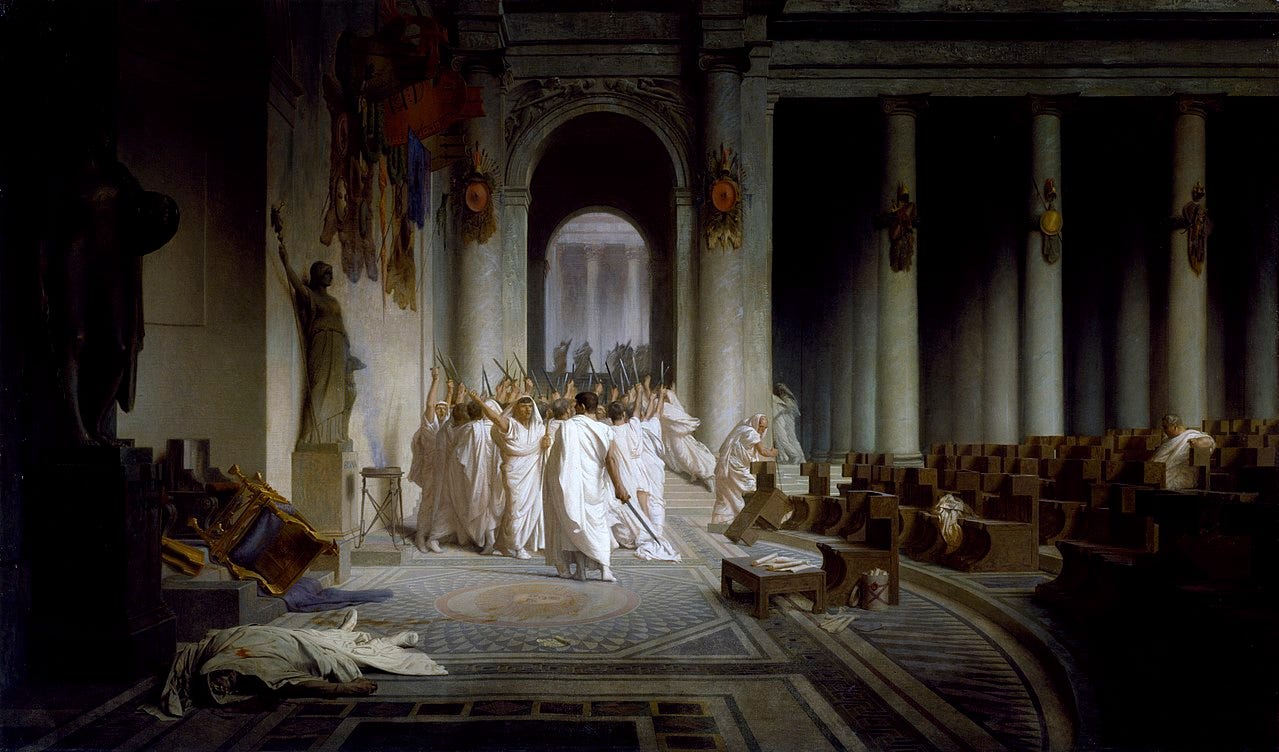The Fault Is in Ourselves
History is replete with examples of fearmongering to bring to heel those deemed unworthy.

“The fault, dear Brutus, is not in our stars,
But in ourselves, that we are underlings.”
— William Shakespeare, 1599
From Salem to Selma, from the Red Scare to the Red States, we have rehearsed our anxieties with the fervor of a nation convinced that the barbarians are not only at the gate but already seated in the parlor, sipping our bourbon and rewriting our textbooks.
The weaponization of fear is not isolated to both ends of Pennsylvania Avenue but finds its ways into ivory towers and Silicon Valley as a tried a true method of leadership by fiat: one that intimidates workers into obeying, rather inspiring collaboration by treating them with dignity and respect.1
Why?
There’s power in fear. Those with power can …



